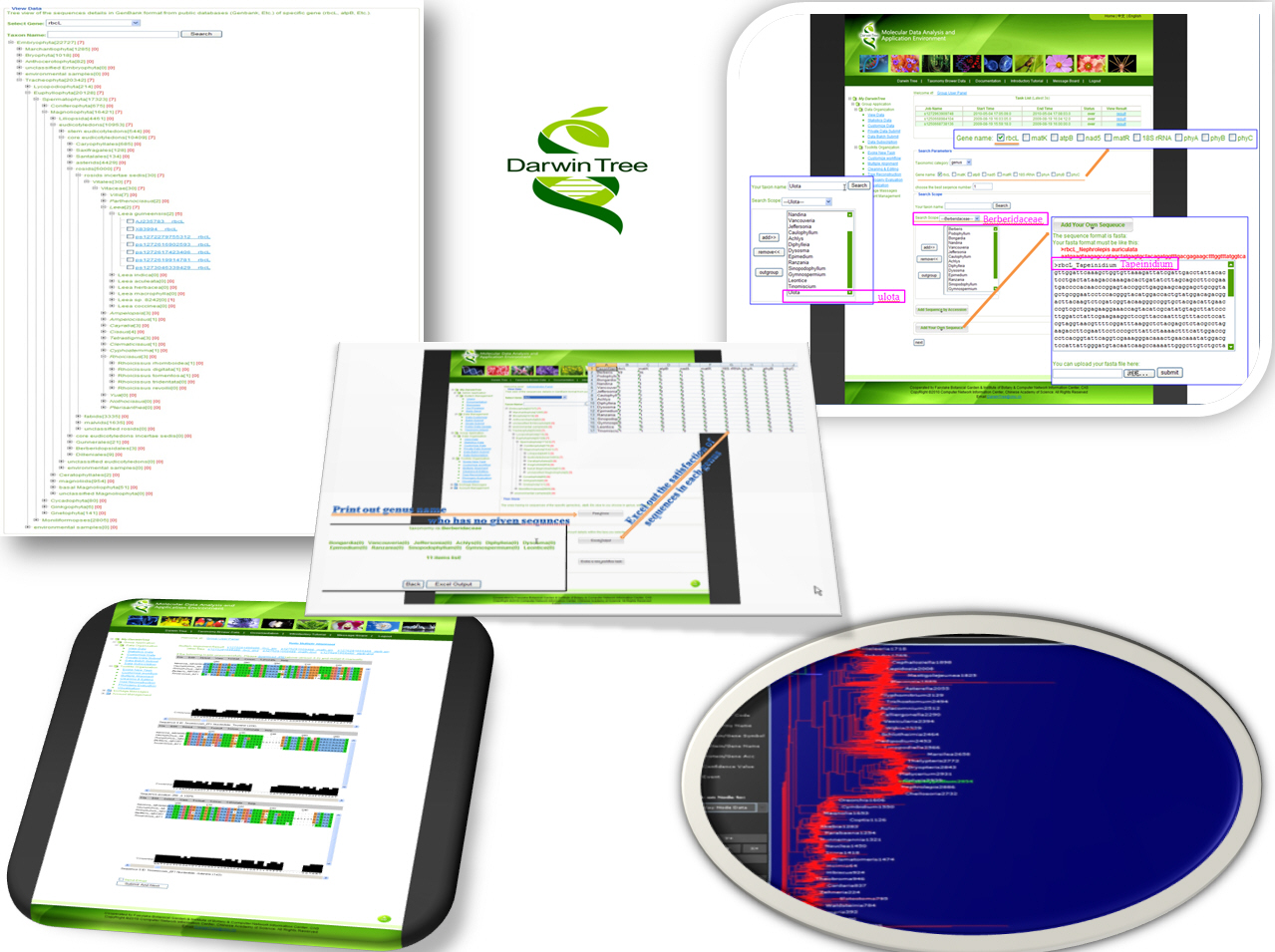|
|
Tree of Life (ToL) is a phylogenetic tree which compiles
information about biodiversity and the evolutionary
relationships of all organisms on the earth (living and
extinct). With such a framework, we can present information
about every species and significant group of organisms on earth,
learn about and appreciate biological diversity and the
evolutionary tree of life, and more significantly is we can also
share information with other databases and analytical tools, and
to phylogenetically link information from other databases.
However, how to construct the TOL and fully exploit its huge
information is still a big challenge.
Molecular Data Analysis and Application Environment (DarwinTree),
whose predecessor is Phylogenetic Analysis of Land Plants Platform (PALPP),
is initiated and compiled collaboratively by Computer Network
Information Center, Chinese Academy of Sciences (CNIC, CAS),
Institute of Botany, Chinese Academy of Sciences (IB, CAS) and
ShenZhen Fairylake Botanical Garden, Chinese Academy of Sciences
(FBG,CAS). Core scientific component of DarwinTree is from
biologists, experts in particular groups of organisms,
informatics and computer researchers. The goals of DarwinTree are to
provide automatically work environment for data gathering and
phylogenetic analysis for scientific research, and furthermore,
to share information with other databases, and to link
information from other databases through phylogeny.
|

|
|
NPPlanner(National Park Planner) platform presents various dynamic species
diversity visualization based on species geo-distribution data and species
classification data. This platform also incorporates several algorithms so
as to allow user to do online green indices analysis and protective indices analysis. Based on these analysis, users could further try national park planning
by setting kinds of meaningful parameters in an interactive way. Also, geographical
visualization result could be exported as high-resolution PNG file and as a result
used otherwhere.
|
|
At present, DarwinTree extracts molecular data of rbcL, atpB and
other genes or sequences, from the international public
databases (GeneBank, DDBJ, and EMBL) in batch, which is
automated acquisition, cleaning function for users to understand
the situation of peer data. It also has the function of private
data management to ensure that the data mining before
publishing.?The process of phylogenetic reconstruction includes
several public modes and tools, such as batch extraction,
multiple sequence alignment, cleaning & editing, tree
reconstruction, phylogeny evaluation and visualization. All
these procedures demand a number of interactive interfaces for
phylogenetic tree automatic generation and decision-making aids
experiment. Based on the data and computing environment in CNIC,
phylogenetic users only need to visit the platform and to
complete all these works.
|
|
DarwinTree@cnic.cn
|
|



